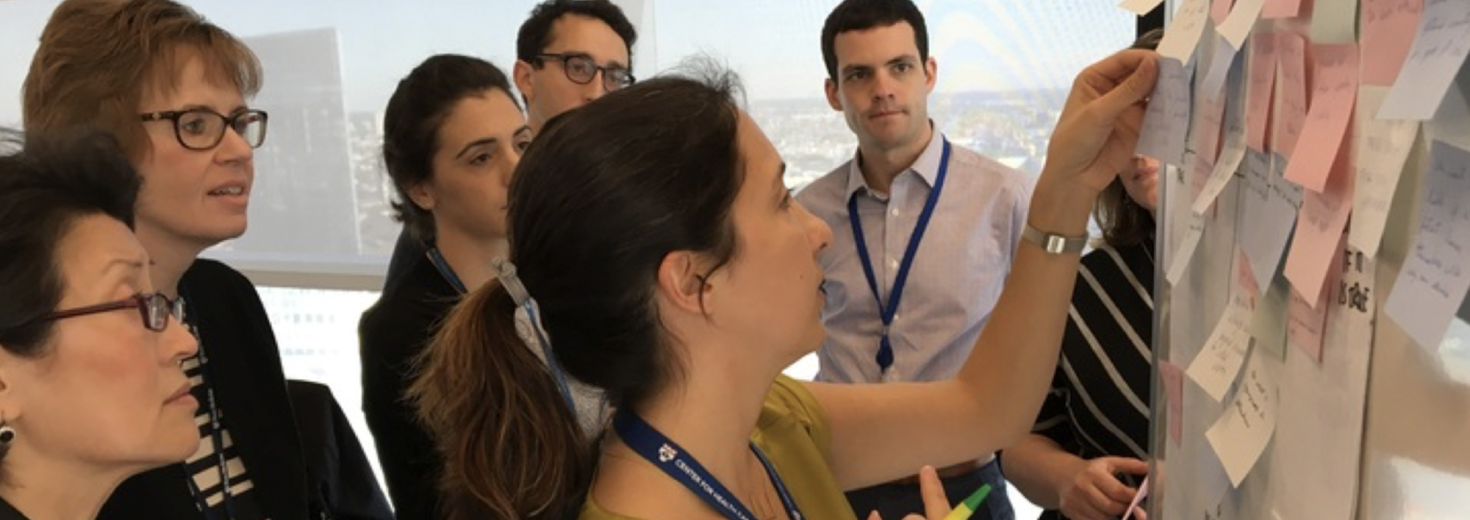The Innovation Accelerator Program (IAP) supports faculty and staff from across Penn Medicine in their efforts to develop, test, and implement new approaches to improve health care delivery and patient outcomes. Working closely with innovation advisors, teams selected to participate in the program move through multiple phases of work to validate solutions and bring successful innovations to scale at Penn Medicine and beyond. Since the program's inception, more than 30 projects have been funded.
We hold a call for proposals every 1–2 years. Please check back in fall 2026 for information on the 2027 IAP cycle.
Program Structure
Working closely with innovation advisors, teams move through multiple phases of work to validate new approaches and bring successful innovations to scale at Penn Medicine and beyond.
Phase one: It might work
In phase one, teams work to gain a deep understanding of the problem or opportunity space, rapidly test potential solutions, and generate early evidence that they can move the needle. At the end of phase one, teams present to health system leadership for the opportunity to receive additional investment to take their ideas to scale.
Phase two: It does work
In phase two, teams move from conducting small experiments to testing on a larger scale. Teams are challenged to demonstrate sustained impact and secure the resources and stakeholder support necessary to advance their solution toward implementation.
Phase three: How we work
Leveraging knowledge and momentum from previous phases, teams work with stakeholders to secure the permanent infrastructure necessary for their intervention. Teams “graduate” when a sustainable infrastructure for the solution is implemented at Penn Medicine.
Phase four: How others work
When appropriate, we support teams to energize and catalyze other health systems to adopt successful innovations.
Since the program's inception, more than 30 projects have been funded.
Related Videos
At the end of phase one, Innovation Accelerator teams present to health system leadership for the opportunity to receive additional investment to take their ideas to scale. Watch videos from Pitch Day below to learn about the impressive progress teams can make in only six months.
Featuring presentations for LiveAware, Healing at Home, MEND, and CORE
Featuring presentations for Advanced Heart Care at Home, Breathe Better Together, IMPaCT, Heart Safe Motherhood, Penn Medicine Virtual Care, and SOAR
Featuring presentations for Superutilization Management Program, PEACE, HiRPM, Our Care Wishes, Eyes on Site, PreOp+, and two other projects
